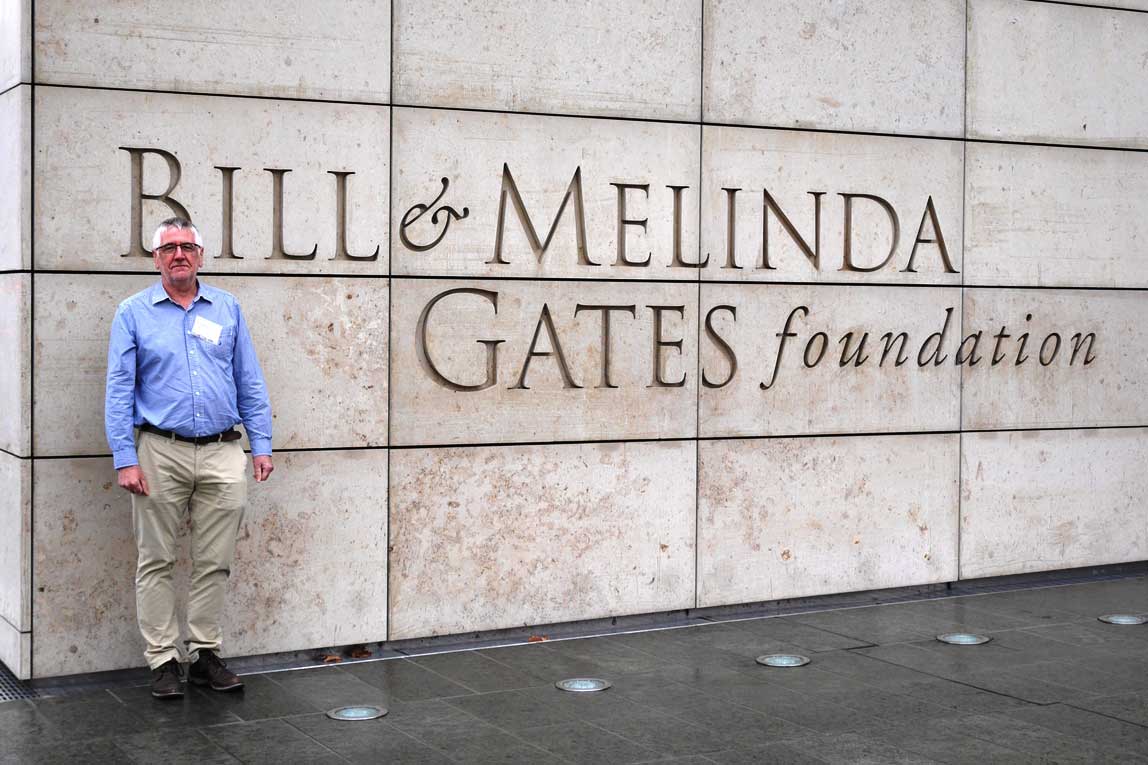
On World Water Day, Flinders research to help some of the world’s poorest communities safely recycle their waste water is being presented at the Bill and Melinda Gates Foundation in Seattle.
Flinders wastewater expert Professor Howard Fallowfield is joining more than 20 of the world’s leading experts, all specially selected by the UNESCO & the Foundation to contribute to the “Global Water Pathogen Project (GWPP) Case Study Team Meeting”, as they seek to support and improve global waste water recycling efforts.
Professor Fallowfield is presenting his work on the recently validated Flinders (HRAP) wastewater treatment system developed at Kingston on Murray in collaboration with the Local Government Association of SA and Loxton Waikerie District Council.
The HRAP system treating wastewater from the rural community of Kingston on Murray was designed, operated and researched over eight years, and has been validated using the Australian National Guidelines for Water Recycling: Managing Health and Environmental Risks.
The high profile summit is being run by UNESCO, GWPP, Michigan State University, the International Hydrological Programme and the Gates Foundation.
“Our GWPP case study on the High Rate Algal Pond (HRAP) system describes the treatment system, the issues associated with conducting system validations in remote communities – and how to overcome them,” says Professor Fallowfield.
“All of the case studies aim to support managers and planners in the implementation of the World Health Organisation (WHO) Sanitation Safety Planning Manual for the Safe Disposal and Use of Wastewater, Greywater and Excreta (2016).
“It’s a great honour to be able to present Flinders research at the GWPP, which is coordinated by Michigan State University and funded by the Bill and Melinda Gates Foundation.
“The opportunity came after we presented a paper at the International Water Association’s (IWA) Wastewater Pond Technologies Specialist Group Meeting in Leeds last year.
“A parallel UNESCO meeting in support of the World Health Organisation (WHO) Sanitation Safety Planning Manual for the Safe Disposal and Use of Wastewater, Greywater and Excreta was also being held in Leeds.
“They made a presentation, requesting case studies to support the GWPP, at the IWA meeting, and encouraged us to submit an abstract which was subsequently accepted for inclusion in the GWPP.”
Professor Fallowfield said the Flinders HRAP research would now be published on the GWPP web site and subsequently available in a book published by UNESCO.
“Ultimately we would hope that the HRAP system will be applied in other rural communities in climates similar to South Australia, reducing the burden of disease and improving the health of people living in these communities,” he said.
About the GWPP case studies
The objectives of GWPP case studies is to demonstrate how health based targets can be used to management of risk of human exposure to pathogens in contaminated wastewater, greywater or excreta.
About the HRAP system
The HRAP system treating wastewater from the rural community of Kingston on Murray was designed, operated and researched over eight years, and was recently validated using the Australian National Guidelines for Water Recycling: Managing Health and Environmental Risks, which uses health based targets to ensure safe wastewater reuse.

